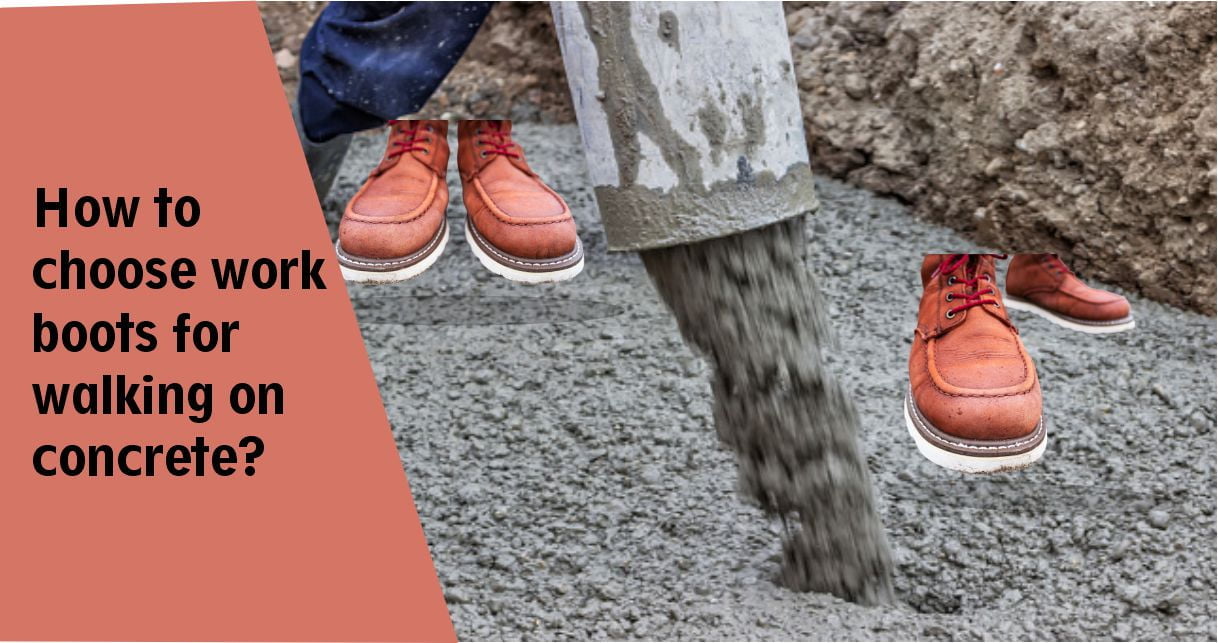Here are some important factors you should consider when choosing the best work shoes for walking on concrete all day. Because it is crucial to know how to choose work boots for walking on concrete.
Important factors on how to choose work boots for walking on concrete:
They are as follows below:
1. Under the standard
2. Full-grain leather
3. Comfortable footbed or insole
4. Defensive thumb
Under the standard:
The sole of your boot is the main barrier between your feet and the concrete you’ll spend your days on. Choosing a work boot with a thick sole is like driving a car with good shocks. No one wants to feel every bump while driving, and your body doesn’t need to absorb the shock of every step because your shoe doesn’t have a well-made sole. Thicker soles also last longer so you won’t need to re-sole your shoes as often.
Full grain leather for how to choose work boots for walking on concrete:
Concrete work can really dry out the skin. Your shoes are covered in dust and dirt, and concrete dust can make work shoes especially dehydrated. The quality of the leather can make a big difference in how long your work boots last. Full-grain leather is the most durable and highest quality leather a work boot can be made from, so make sure you don’t fall for any of the “genuine leather” marketing gimmicks that often lead consumers to think they are. Used to get what they are getting. A high-quality product. Full-grain leather is a strong feature of the best work boots for concrete and other hard work.
Comfortable footbed or insole:
The footbed of your work boot is a feature that is unique to each individual as it depends on the shape of your foot and the size of your arch. Opting for a pair of work boots that have a memory foam footbed that molds to your foot, while a Poron insole can help cushion every step. The best insoles for concrete work shoes usually have heel cups, extra cushioning, and arch support specific to your foot. Good footbeds and insoles aren’t just about foot comfort. They can prevent conditions like foot ulcers and plantar fasciitis.
Defensive thumb:
Filled with large-scale work, it has reached a busy place, focusing on the panic on your hands. Protect other fingers and avoid accidents. A safety tip for one on the concrete, on your feet that day, includes the jobs that composites are doing. You teach is the day that Britain is between the soles of your feet and the concrete. Since the composite is slightly lighter than steel, you’ll have to put less effort into picking up your feet while you walk. Composite is also a poor conductor of heat, which means you’re less likely to feel extreme weather and have overly hot or frozen toes
